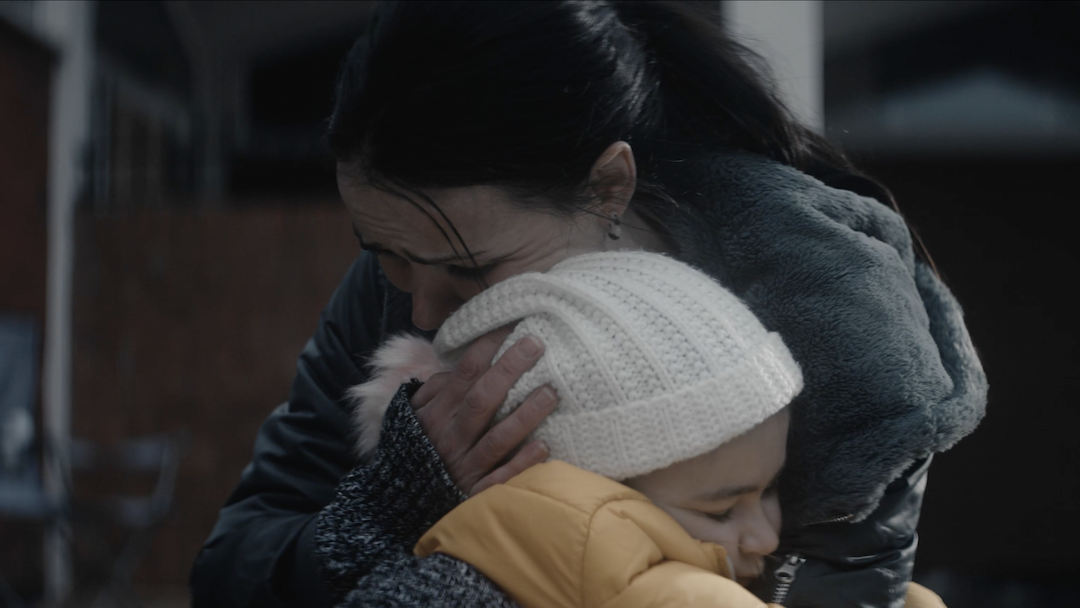
Stories of working-class, small-town life are something I personally resonate with. I am also easily annoyed when they’re not genuine – or what I feel is genuine – and I am sure most others are too. If you’re going to write about “working class life” then do it right.
It has nothing to do with being “grim up north” (which incidentally is not that grim at all). We all know that working class communities feel the brunt of government cuts. The rich get richer while the poor get… well, whatever. It has been happening for decades, and it’s happening now, but getting constantly battered by funding cuts, job cuts, lazy negative stereo types, and government indifference, creates a void in a community – and that void is often filled by crime, opportunists, and toxic masculinity.
That may form the backdrop for the characters in Wait for Me, yet for me this was always a love story – albeit a very dangerous kind of love, and the kind that can never be reciprocated.
The main character, Alison, represents the part of all of us that has maybe strayed too far from where she needs to be, yet fixing her mistakes is a far harder task. Alison has taken that to extremes, and now she’s clawing her way back but only making things worse at every turn. She is certainly a strong female character that has seen harsh things in her life. Alison gave me the opportunity to avoid the cliches of how working class women are often written, cliches that we’ve seen too many times in films. She is fierce, determined, complicated and capable, and that should be celebrated. The theme of motherhood is also intrinsic to the piece, especially in just how far Alison is willing to go to repair that bond with a lost child, despite the jeopardy it could put them all in.
The cast of Wait for Me are certainly diverse but it always amuses me to see terms like “diverse casting”, as if it is some kind of box ticking requirement. Great acting should be rewarded and great actors, regardless of their background, should always get the best roles – but I am not naïve, and I know that is not always the case.
This may surprise some readers, but growing up in Blackburn, when it comes to diversity, I’ve never known it any other way. The son of Irish parents, growing up in the north of England in the 1970s, when being the butt of Irish jokes in the school playground were commonplace and it seemed as if every other week there was a shocking incident linked to the troubles, which always seemed to get mentioned as if we had inside knowledge. I’d play with the Nigerian kids next door. The Asian newsagent would save my comics for me every Thursday and my Dad would have his own mug under his counter so the two of them could drink tea and put the world to rights.
I know these people. I know their lives. It never occurred to me that this cast would be anything other than diverse.
I can take no credit for finding the talent to play these characters, but I can tell you that there was nothing more unnerving, and rewarding, than seeing the people that live in my head suddenly brought to life exactly as I imagined. That is testament to their natural ability, and humbling that they found something in the pages that helped them achieve it.
The characters in Wait for Me are perhaps not the kinds of people you would want to live next door to, but none of us really know what goes on with the people next door (and us writers are always desperate to find out). We’re left to imagine what pain they might be going through, the troubled past they would like to forget, the hopes and dreams they still cling to. We don’t know just what they are capable of – and not just the bad things.
As a society, we are becoming more understanding of mental health issues. The harsh truth being that these conditions have always been there, long before the many abbreviations became commonplace. There is tragedy that in decades past, people that were struggling could be labelled in ways we would never consider now. It’s hard to imagine the level of suffering that must have been endured without help.
These things were always here, we just never fully saw them – and in Wait for Me we embrace those awkward, painful yet common social conditions and see the effect they have on one of the characters.
If I could boil Wait for Me down to one identifiable phrase, it would be to not judge a book by its cover. Even people that are trapped in the seemingly toughest of lives are capable of experiencing moments of beauty in ways that can surprise us – and hopefully we can all learn something by that.
Bernard O’Toole began his career in the music industry, writing singles for various boy bands. In 2002 his first short film, Let it be me was the runner up at the Big Issue Film Festival and seeing something of his on the big screen convinced him to abandon the boy bands and pursue a career in screenwriting. In 2005, he won a BBC Writersroom Initiative, which resulted in development on a comedy drama pilot script, Country Town. In 2012, he won the Red Planet Prize. Other commissions include a drama for LA Production and feature films for Gas Music, Not a Number Productions, Rowbotstreet and Silver Bullet.















